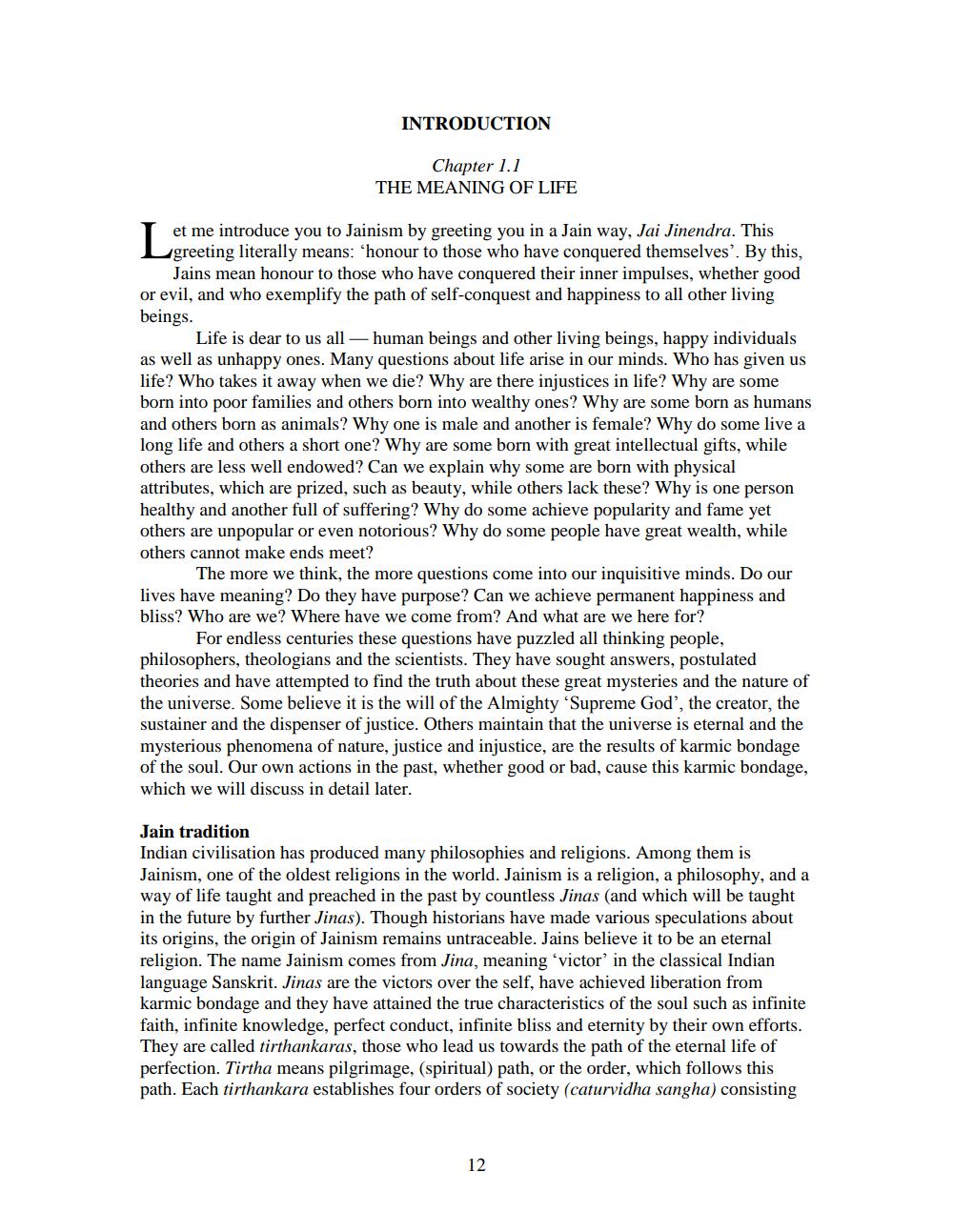________________
INTRODUCTION
Chapter 1.1 THE MEANING OF LIFE
Le
et me introduce you to Jainism by greeting you in a Jain way, Jai Jinendra. This greeting literally means: 'honour to those who have conquered themselves". By this, Jains mean honour to those who have conquered their inner impulses, whether good or evil, and who exemplify the path of self-conquest and happiness to all other living beings.
Life is dear to us all — human beings and other living beings, happy individuals as well as unhappy ones. Many questions about life arise in our minds. Who has given us life? Who takes it away when we die? Why are there injustices in life? Why are some born into poor families and others born into wealthy ones? Why are some born as humans and others born as animals? Why one is male and another is female? Why do some live a long life and others a short one? Why are some born with great intellectual gifts, while others are less well endowed? Can we explain why some are born with physical attributes, which are prized, such as beauty, while others lack these? Why is one person healthy and another full of suffering? Why do some achieve popularity and fame yet others are unpopular or even notorious? Why do some people have great wealth, while others cannot make ends meet?
The more we think, the more questions come into our inquisitive minds. Do our lives have meaning? Do they have purpose? Can we achieve permanent happiness and bliss? Who are we? Where have we come from? And what are we here for?
For endless centuries these questions have puzzled all thinking people, philosophers, theologians and the scientists. They have sought answers, postulated theories and have attempted to find the truth about these great mysteries and the nature of the universe. Some believe it is the will of the Almighty 'Supreme God', the creator, the sustainer and the dispenser of justice. Others maintain that the universe is eternal and the mysterious phenomena of nature, justice and injustice, are the results of karmic bondage of the soul. Our own actions in the past, whether good or bad, cause this karmic bondage, which we will discuss in detail later.
Jain tradition
Indian civilisation has produced many philosophies and religions. Among them is Jainism, one of the oldest religions in the world. Jainism is a religion, a philosophy, and a way of life taught and preached in the past by countless Jinas (and which will be taught in the future by further Jinas). Though historians have made various speculations about its origins, the origin of Jainism remains untraceable. Jains believe it to be an eternal religion. The name Jainism comes from Jina, meaning 'victor' in the classical Indian language Sanskrit. Jinas are the victors over the self, have achieved liberation from karmic bondage and they have attained the true characteristics of the soul such as infinite faith, infinite knowledge, perfect conduct, infinite bliss and eternity by their own efforts. They are called tirthankaras, those who lead us towards the path of the eternal life of perfection. Tirtha means pilgrimage, (spiritual) path, or the order, which follows this path. Each tirthankara establishes four orders of society (caturvidha sangha) consisting
12




